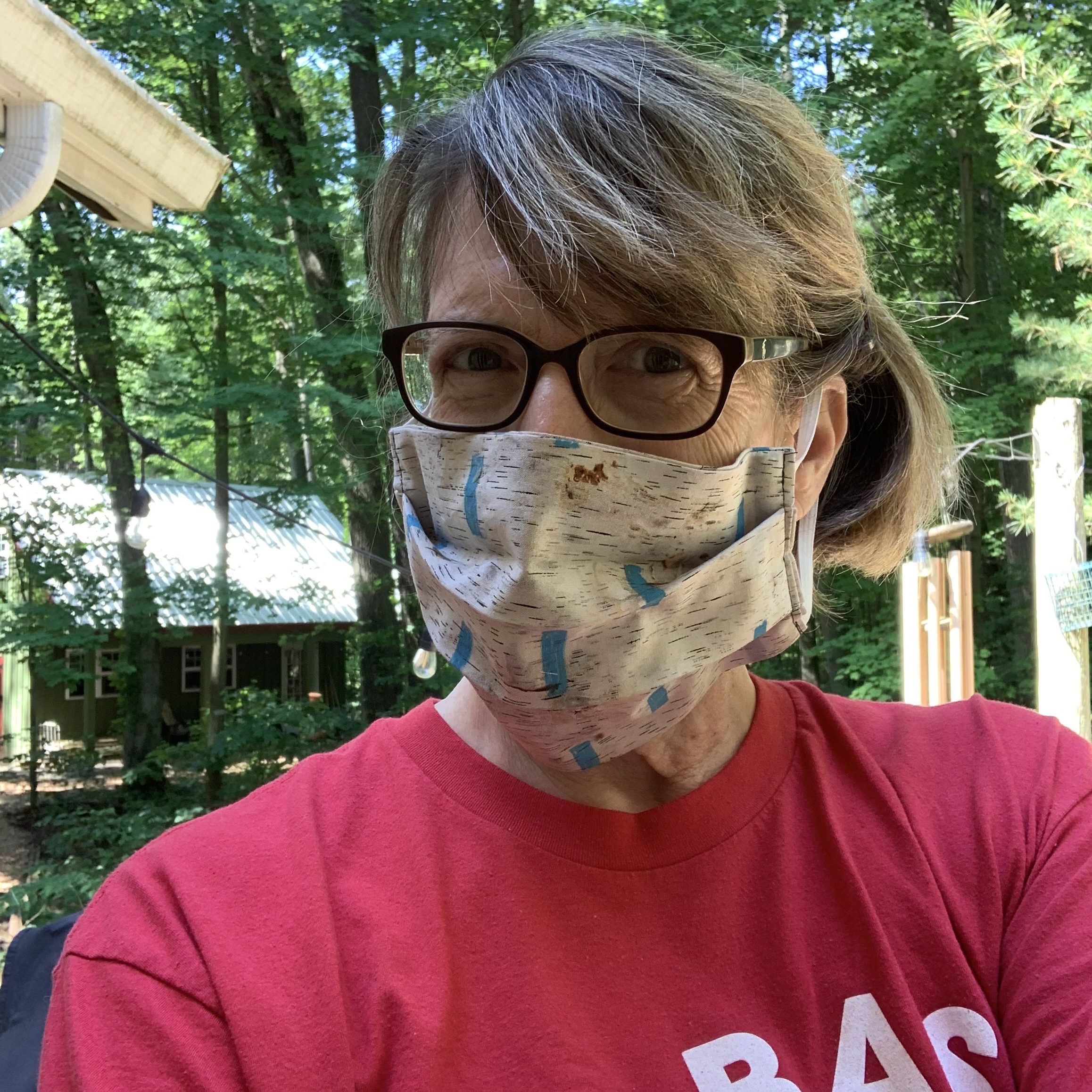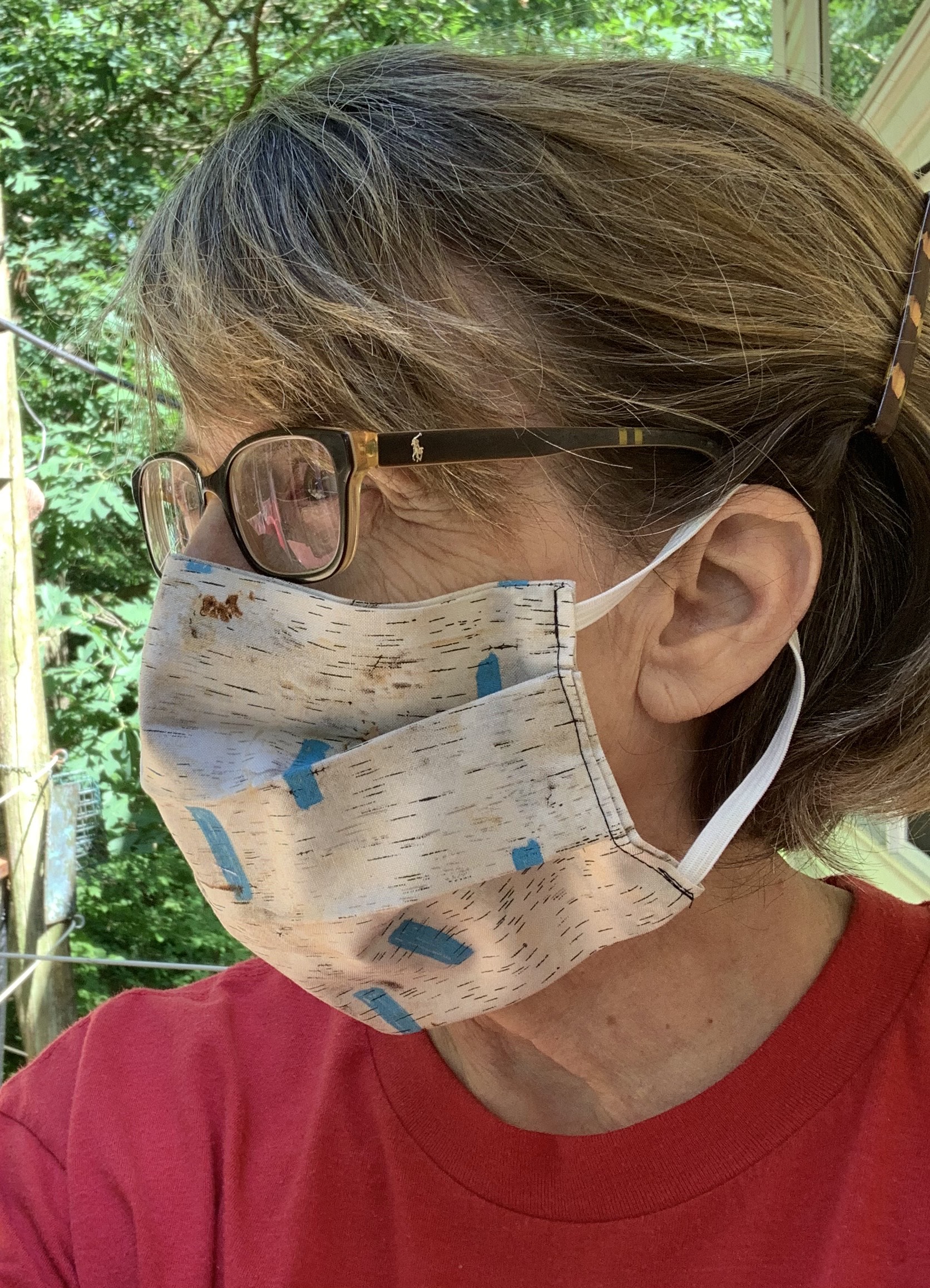Our Stories
Marianne Duvendack: Volunteer Spotlight
“I sometimes find that folks also drop off a little cash,” Marianne added. “I’ve also asked friends to send an extra donation to one of their favorite charities instead of paying me.”
Since mid-March of this year, face masks have become an essential part of wardrobes across America. The Coronavirus pandemic caused the Center for Disease Control (CDC) to recommend keeping one’s mouth and nose shielded if stepping out in public was a necessity, to limit or prevent the spread of the virus. The quick spread of the virus and the urgency of the CDC’s recommendation caused a shortage of face masks, but many crafty and generous seamstresses and tailors – both amateur and seasoned – volunteered their sewing skills, fabric and time to keep their communities healthy. The North Country Trail community is proud that one of its own, Marianne Duvendack of Ohio, has been involved in this effort.

“I started working on them [masks] when most of us did: mid-March or so, and I work on them when it’s too yucky to go outside,” Marianne explained. “I’ve been sewing garments and quilts since grade school. Anywhere I go, my sewing machine goes. Since I have a great stash of fabric, it was just natural to start making masks.”
Marianne is also a member of member of the Northwestern Ohio Rails-to-Trails Association (NORTA) which hosts a long stretch of the North Country Trail on a rail trail. She has been giving away masks as much as possible. When she finishes a batch, she leaves a box on her front porch for friends to pick up.
“I sometimes find that folks also drop off a little cash,” Marianne added. “I’ve also asked friends to send an extra donation to one of their favorite charities instead of paying me.”
She uses patterns and sizing recommendations from Johns Hopkins Medicine’s website, and has experimented with both elastic straps and ribbon-and-string ties, the latter of which she used on masks for fellow NCTA volunteers.
“The oddest thing I discovered,” Marianne mused, “is that my older son’s ears are so soft he can’t wear any of the elastic ones! That’s when I started experimenting with strings.”
“I was also worried that I might run out of red plaid fabric, so I lined them with my next favorite fabric: anything oak related!” Marianne wrote. “The pattern I’ve settled on lately is super quick to make and provides basic coverage. Interestingly, quilt fabric is more effective than even the fabric used in traditional cloth surgical masks and the blue “paper” ones, because of the higher thread count and double layer. There are lots of sewists (we call ourselves that now) who are making masks that can be used with special filters.”

Marianne was gifted a decent amount of elastic recently and enjoys the challenge of finding the “sweet spot” of elastic length for each mask, considering not everyone’s head is the same size. She has created several custom fitted masks to work around this, especially for people who wear glasses and hearing aids.
Once the fabric is washed and ironed, Marianne can cut out about 20 masks per hour, and can sew about 10 per hour. “And right now I have more fabric calling my name.”
“My piece of advice,” Marianne recommended, “is to get several masks so you can make sure they get washed and of course, they should match your outfit! We’re in the long haul for mask wearing, so stock up.”
She has also generously offered to create masks for anyone who needs some.
“And if you have a special fabric request for a group of folks,” she added, “I can send photos of the fabric I have on hand, or you can send me the fabric, and we’ll go from there. On average I can get eight to 12 masks from a yard of fabric.”
Marianne can be contacted about mask sewing requests or questions at mbduvendack@gmail.com.
—
This spring, the North Country Trail Association established a task force to help guide discussion and decision making, addressing best practices for our volunteers returning to trail work. The task force is comprised of over a dozen Chapter and Affiliate leaders, volunteers, National Park Service and U.S. Forest Service partners, NCTA staff and board representatives. The group met in May to create a framework for Trail Leaders to make solid decisions about how NCT volunteers could safely consider hikes, trail projects and events over the upcoming field season. These guidelines include a strong recommendation for trail building and maintenance volunteers to wear face masks when physical distance is not possible. Visit northcountrytrail.org/the-trail/trail-alerts to learn more about this guidance.
